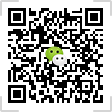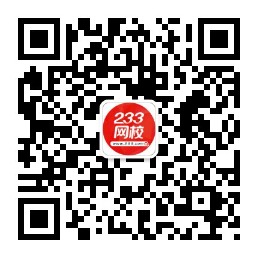2016年江西教师公开招聘初中英语笔试真题答案

第一部分 客观题 Part Ⅰ(每空0.5分,共10分)
1.When I saw Tom, I stopped and smiled, but he ( A ) me and walked on.
A.ignored B.refused C. denied D. missed
2.The man’s( A )was described as impatient in contrast to his wife’s.
A. character B. personality C. nature D. property
3.His decision to sail B his belief that the world was round.
A. counted on B. rested on C. depended on D. rested with
4.The plain occupies the west, south and central parts of the continent, though considerable variations are to be found over so ( C ) an area.
A. expensive B. expansive C. extensive D. intensive
5. ( D ) ,I agree with you. Practically speaking, however, I don’t think your idea would work.
A. In general B. In public C. In practice D. In principle
6. ( A ) might be expected, the response to the question was very mixed.
A.As B. That C. It D. What
7.- ( C ) I sit here by the window?
-Yes, of course you .
A. May•••might B. Might•••might
C. Could•••can D. Could•••could
8.As they usually receive the same score in standardized examinations, there is often disagreement as to ( B ) is the better student, Bob or Helen.
A. which B. who C. whom D. whose
9.-Do you think living in the country has advantages?
- ( D ).
A. Yes, it is B. Yes, perfectly
C. Nothing at all D. Well, that depends
10.It was the training that he had as a young man( A ) made him such a good orator.
A. that B. what C. which D. who
11.-How do you know that Mary was angry?
-I could tell( D ) her face.
A. for B. with C. to D. by
12.Every teacher and pupil at Eton Girl’s college is proud of( B )school.
A. his B. her C. their D. one’s
13.Suppose you were given a chance to go abroad, you accept?
A. would B. will C. shall D. do
14.Bob, ( B ) Japanese at college, offered to translate the article for me.
A. learned B. having learned C. being learned D. to have learned
15.-Have you gone to see the doctor?
-No, but( D ).
A.I go B. I’m going to see C.I go to see D. I’m going to
16.Mr.wilson said that he didi not want to ______any further responbilities.
A.take on B.get on C.put up D.look up
17.I’ll __B___you off this time,but next time you will be punished.
A.leave B.let C.put D.set
18.This crop has similar qualities to previous one,___A___both wind resistant and adapted to the same type of soil.
A.being B.been C.to be D.having been
19.I was greatly shocked the way ___B___things were done there.
A.how B.that C.as D.which
20.Mr.Smirth is an intelligent and stimulating teacher._____C____,he take an interest in the personal well-being of his students.
A.however B.moreovr C.therefore D.anyway
Part ll Cloze(1分1空)
Science is based upon observation.However,observation ___21A___is not science,Scientists generally a problem. Then ___22B__guides them in their observation.But withuot observation people generally are not ___23C__of a problem. This then raises a question__24D__ comes frist,the observation or the problem. Curiosity awakens a ___25B___for observation.observation will usually __26A___sprcific questions in rhe mind of a scientist._27C__his curiosity he begins to make observations.__28d___he formulates a specific statement that can bve tested. This statement is called a hyphesis, it’s the starting point for an expetiment.
__29C__experimenting,the scientist tries to show or prove that the hypothesis is true __30b__false.he must use good _31a__to create an experiment that __32a___ rhe problem.the experiment must produce __33c__information or data.the dara garhered during the experiment are observations.
Observation can be made directly indirectly. For indirect observation.instruments are often used.__34B__INSTUMENTS used by modern scientists are quite simple,other are very __35d__.
To complete his experiment, the scientist must state his observations__36c___numerical form. This means that he has to make measurements.With rhe results from __37b__he can make movr exact comparisons or descriptions to __38b__his hypothesis. The results of a scientific experiment __39c__on a logical hypothesis can often __40d__a better understanding of rhe word and teh univese.
21. A.alone B.lonely C.mere D.sole
22. A.we B.it C.you D.they
23. A.know B.regardless C.aware D. Informed
24. A.who B.whether C.what D.which
25. A.hope B.need C.group D.style
26. A.raise B.arise C.arouse D.rise
27. A.satisfying B.satisfying woith C.to satisfy D.satisfied with
28. A.again B.still C.thus D.then
29. A.on B.in C.by D.at
30. A.not B.or C.nor D.and
31. A.imagination B.memory C.capacity D.machine
32. A.fits B.firs for C.capacity D.machine
33. A.variable B.vague C.valid D.various
34. A.no B.some C.all D.few
35. A.convenient B.comfortable C.compound D.complex
36. A.om B.with C.in D.by
37. A.it B.these C.this D.that
38. A.research B.prove C.approve D.improve
39. A.to base B.basing C.based D.being based
温馨提示:因考试政策、内容不断变化与调整,233网校网站提供的以上信息仅供参考,如有异议,请考生以权威部门公布的内容为准!





